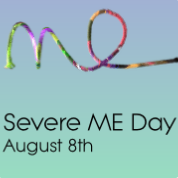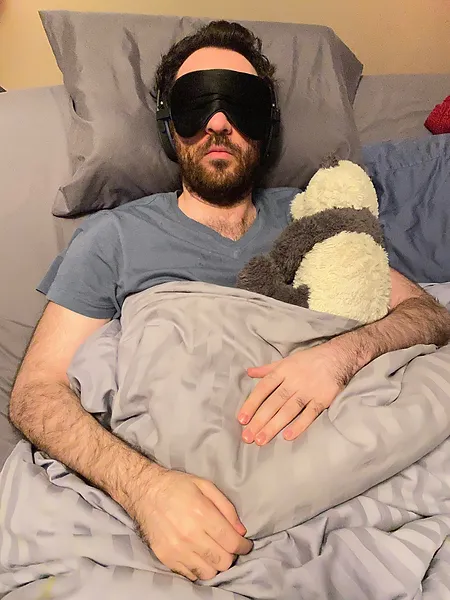Campaigning
Severe M.E Day – 8th of August 2022
A day to remember everyone who is suffering or who has ever suffered from Severe and Very Severe Myalgic Encephalomyelitis.

A day to honor
A day to honor the strength of spirit of all those who have endured and continue to endure decades of suffering and profound physical dysfunction and yet receive little, or no recognition or help, but rather continue to experience gross misrepresentation and misinterpretation of their illness and profound disability.
This Years Focus

Toileting in the bed
A guide to preparing for and cleaning up a bowel movement in the bed when someone with Long Covid or Myalgic Encephalomyelitis (ME) becomes too severely ill to get onto a toilet or commode. From Galen’s forthcoming book about caring for her son, James Strazza, with Severe ME.


A Journal of James
From Galen Warden.
“In honor of Severe ME Awareness Day, I am posting a chapter from a forthcoming memoir about caring for my son James. This content is intended for non-patients.”

25% ME Group at IACFSME Conference
Advocacy worker, Helen Baxter attended the International Association for Chronic Fatigue Syndrome/Myalgic Encephalomyelitis (IACFSME) Conference at the end of July and did a presentation entitled ‘How to ensure the Voice of the Severely affected ME/CFS patient is heard in research’. She showed that with reasonable adjustments, such as assisting patients to complete questionnaires by telephone/text it is possible to enable patients with very severe ME to participate in research. She has shared a copy of her slides from the conference.The IACFSME conference was covered by journalist, Miriam Tucker, who chose to focus an article on our advocacy worker, Helen Baxter’s presentation. The article includes comments from our medical adviser, Dr Speight and Dr Bateman from The Bateman Horne Centre.

BRAIN FOG
By Jan Johnson
Have you seen the 25% ME Group’s video about brain fog yet? It was viewed over 500 times by ME Awareness Day. Search for the following YouTube link if you would like to view it.
We’d like to thank all the 25%ers who contributed to the 25% ME Group charity YouTube video about brain fog which we produced for ME Awareness Day 12 May, 2022.
It started with a poll, asking members of the 25% ME “secret” Facebook group to use their own words to describe what brain fog feels like – preferably separate comments for different symptoms of brain fog so that we could make a little awareness video from their words.
Some members kindly allowed us to use their images to illustrate how they look when they are suffering from brain fog. This was very brave of them as most of us like to look our best when we are going to be seen.
The video also includes some thoughts about brain fog written by 25%er, Wendy Boutilier that was shared on the 25% Severe ME News Group Facebook page. Many thanks to Wendy for allowing us to use her article.
We have reproduced Wendy’s piece here.
A description of brain fog
by Wendy Boutilier
My description of Brain fog
When the brain, during non-optimal functioning, renders it inefficient for most types of information processing, whether it is executive functioning, memory, perceptual reasoning or information processing speed.
When your brain power is significantly less than normal and the ability of the brain to sustain commitment of resources to mediate different functions is severely compromised.
The results indicate slowed verbal comprehension, executive functions, perceptual reasoning, processing speed and memory, the sum total of which is known as Brain Fog.
It’s an uncomfortable feeling of being spaced out. It can make it difficult for you to focus on tasks at hand, remember things, or pay attention to what’s going on around you. It can also make you feel out of sorts and unlike yourself.
Patients who experience life with M.E. describe how it tends to ebb and flow and note that they have difficulty retrieving memories. Some even find themselves unable to sign their own names.
M.E. sufferers don’t forget so much as have difficulty calling up their memories. “It’s the effort that #PWME require to process things that you need to do even simple tasks.” Patients often describe this “brain fog” as their single worse symptom.
Brain fog is a term that many people know but can sometimes be difficult to describe, especially if you’re feeling it. It makes people feel fuzzy or ex
exhausted, and makes it almost impossible to complete normal tasks. People suffering from brain fog may experience problems with attention, concentration, speech, memory, organization, and other cognitive skills. It can be hard to keep one’s thoughts straight and long stretches of time can pass without getting much done.
They may describe being easily confused, unmotivated, or frustrated, and if the condition persists, they may feel anxious or depressed about their circumstances. Some people can work through brain fog, while others find it debilitating.
Brain fog is not just related to feeling weak after exertion, nor will it go away if a person takes a short break or rest. Brain fog does not exist on its own; it tends to be a symptom of other difficulties or disorders.
The range of disablement caused by brain fog ranges from mild to severe and, as with most other ME symptoms, there is often a fluctuation in severity. At the severe end of the spectrum, this aspect of ME may even be more disabling than pain or fatigue. As a result, the person concerned may be unable to cope with relatively straightforward and familiar tasks.
POEM ABOUT BRAIN FOG
We were also fortunate to have permission to include a poem in our video about brain fog written by 25%er, Rosalynde Lemarchande. Rosalynde has also given her kind permission for us to reproduce her poem here:
BRAIN FOG
by Rosalynde Lemarchande
My head feels light
Doesn’t seem right
Can’t think at all
Names hard to recall
Lost words I seek
When I want to speak
Often Forget
Then get upset
It’s hard to spell
Or write so well
Make notes to aid
For actions to be made
It’s a weird sensation
Causing much frustration
I feel so blank
Brain fog to thank
Rosalynde has recalled other things she has written about brainfog. She has given us permission to share this with you.
‘To me brain fog feels like my brain is missing. My mind feels slow and unresponsive, like I’m wading through treacle, like I’m stumbling in the dark, like I’m lost in a fog and can’t find my way out. It feels like the worst hangover without the benefits of having a drink! My memory is hardly better than a goldfish. Did someone put cotton wool in my head? Where’s my brain gone?!!! ‘
Reflections on making the video
Of course it can be very difficult for many people with severe ME to concentrate sufficiently to watch an informational video, even when it’s quite short. We had a great suggestion that people suffering or
Orthostatic Intolerance, especially the greater risk of standing still/sitting upright too long as I know some of the group can use a wheelchair as I could once.
The interviewer kept asking about how it affected me personally and I am very lucky not to have bad pain, but though I thought I did say many do have pain and there were kids on morphine, it wasn’t in the article. Also, a small correction, though important for me, I can’t ‘sit in’ a sun-lounger feet down, but lie on it feet up, as on a bed.
I didn’t get a stairlift for 9 years as I rang a provider and the chap said it would take a minute and a half to go up my 12 modern house stairs. I thought you had to sit bolt upright, feet down as in the adverts and I couldn’t manage that long.
Then years later group member, Serena Blanchflower (Thanks, Serena!) advised sitting on it leaning over, head bowed, like Rodin’s statue ‘the Thinker’, so I asked another company, explained seconds were vital, and he said it took 45 secs, which is manageable, and I discovered after it came, I can also tuck up one or both feet if needs be.
After talking to the journalist I crashed and brainfog increased a lot so it was hard to find words and my head was very muzzy. It still feels muzzy as I have had a lot going on! “
Thank you, Veronica
We hope you found these contributions from 25%ers to ME Awareness Day useful/informative.
We continue to remember those lost to Severe ME and those who continue to struggle on.
